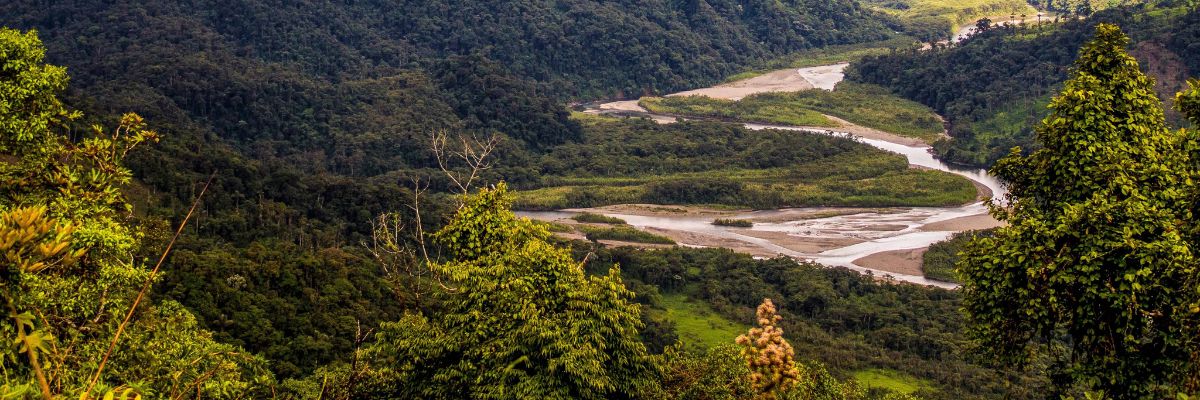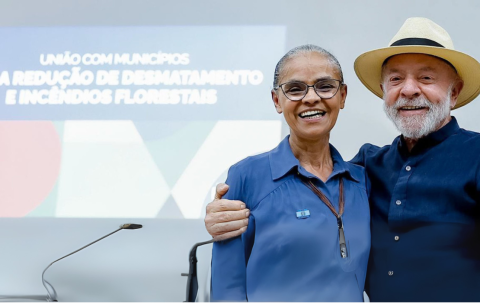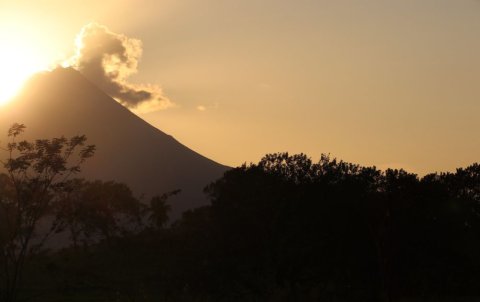Introduction
The Green Climate Fund (GCF) is the world’s largest climate fund, mandated to support developing countries raise and realize their Nationally Determined Contributions (NDC) ambitions towards low-emissions, climate-resilient pathways. It seeks to promote a paradigm shift to low-emission and climate-resilient development by investing across four transitions – built environment; energy & industry; human security, livelihoods and wellbeing; and land-use, forests and ecosystems. It was set up by the 194 countries who are parties to the United Nations Framework Convention on Climate Change (UNFCCC) in 2010, as part of the Convention’s financial mechanism. It aims to deliver equal amounts of funding to mitigation and adaptation, while being guided by the Convention’s principles and provisions. When the Paris Agreement was reached in 2015, the Green Climate Fund was given an important role in serving the agreement and supporting the goal of keeping climate change well below 2 degrees Celsius.
Key Highlights
GCF invests in adaptation and mitigation activities in developing countries through its partner organizations, known as Accredited Entities. GCF invests in the following Strategic Impact Areas. Adaptation: Health, food, and water security; Livelihoods of people and communities; Infrastructure and built environment; and Ecosystems and ecosystem services. Mitigation: Energy generation and access; Transport; Buildings, cities, industries and appliances; and Forests and land use.
In October 2017, the GCF launched a Pilot Programme for REDD+ results-based payments (GCF/B.18/23) to test the delivery of payments for achieved REDD+ results, consistent with the Warsaw Framework for REDD+ and other REDD+ decisions under the United Nations Framework Convention on Climate Change (UNFCCC).The five-year pilot marked a major milestone for the Fund’s support of REDD+, which is now further complemented with the launch in October 2024 of a new REDD+ Results-Based Payment Policy (GCF/B.40/16). The new Policy incorporates these payments into the regular project and programme activity cycle of the Fund, offering a long-term opportunity for countries to access payments for REDD+ results achieved in consistence with UNFCCC decisions and compliant with GCF´s specific criteria.
How UNDP Climate and Forests is contributing
In addition to supporting the REDD+ readiness process, delivered mainly through the UN-REDD Programme, UNDP Climate & Forests is supportingassists countries with the development of funding proposals as well asand providing oversight of projects under implementation in three different ways:
- UNDP acts as accredited entity for proposals to the Forest and Land-Use mitigation impact area in line with GCF support for the early phases of REDD‐plus (GCF/B.17/16). UNDP is currently overseeing the implementation of the following Forest and Land-Use projects:
- Priming Financial and Land-Use Planning Instruments to Reduce Emissions from Deforestation, a USD 41M GCF grant in to support the implementation of Ecuador´s REDD+ Action Plan and NDC. Approved in 2016, it constituted the basis of Ecuador´s Amazonian Integral Forest Conservation and Sustainable Production Program - PROAmazonia. Execution finalized in February 2025.
Ghana Shea Landscape Emissions Reductions Project, a USD 54.5 million US dollars project (including 30.1 million GCF grant), approved in August 2020, to address the alarming deforestation and forest degradation challenges in the Northern Savannah Zone of Ghana, whilst promoting investments in the shea value chain and women’s empowerment.
UNDP acts as an Accredited Entity for proposals submitted to the GCF REDD+ results-based payments pilot programme. UNDP is currently overseeing the implementation of the following REDD+ results-based payment projects:
REDD+ results-based payments for results achieved by Brazil in the Amazon biome in 2014 and 2015, the first worldwide results-based payment proposals approved by the GCF Board in February 2019 for 96M USD. Currently under implementation, this project is the basis of Brazil´s Floresta+ flagship initiative, which aims at providing incentives to local stakeholders for the conservation and sustainable use of the Amazon rainforest.
REDD+ results-based payments for results achieved by Ecuador in 2014, approved by the GCF Board in June 2019 for USD 18.5 million. Currently under implementation, with completion expected in 2026, this project is embedded into PROAmazonia, contributing finance from REDD+ results-based payments to support institutional policies and management capacity for REDD+, the transition to sustainable productive systems, forest restoration, and sustainable forest management, and strengthening the implementation of REDD+ in indigenous territories.
REDD+ results-based payments for results achieved by Indonesia in 2014-2016, approved by the GCF Board in August 2020 for USD 103.8 million. Currently under implementation, with completion expected by the end of 2025, this project contributed substantively to accelerating the implementation of Indonesia´s FOLU Net Sink Strategy 2030 prioritized measures, namely Social Forestry Programme, rehabilitation of forest, mangroves, and peatland ecosystems, and strengthening forest fire management.
REDD+ results-based payments for results achieved by Costa Rica for in 2014-2015, approved by the GCF Board in February 2021 for USD 54 million. Currently under implementation, with completion expected in early 2026, this project brings REDD+ payment to accelerate the implementation of Costa Rica´s priority NDC measures, namely potentiating nature-based solutions as central to climate action, promoting indigenous actions to reduce emissions, including through the implementation of Forest and Territorial Environmental Plans, enhancing the PES programme, increasing agroforestry systems, and strengthening forest fire management.
- UNDP works in partnership with other Accredited Entities (AEs) to act as service provider to implement specific components of an approved project for which UNDP has a comparative advantage. These partnerships allow UNDP to play an important role in crowding-in private sector investments or other financial instruments for accelerating NDC and National REDD+ Strategies implementation, moving away from pure grant instrument proposals and helping GCF engage with other partners to bring forth proposals that are centered on innovative solutions and enhanced partnerships.
UNDP Climate & Forest work with other AEs, in particular International Financial Institutions (IFIs), focuses on developing funding proposals aimed at investing in climate-resilient and deforestation-free production practices, targeting key commodities relevant for ensuring sustainable land-use change patterns that reduce pressure on standing native tropical forests. UNDP sees high potential of this model with other IFIs and GCF National Accredited Entities. To this end, UNDP has a specific MOU with the Italian Cassa Deposito i Prestiti (CDP.it) and is exploring new opportunities with other partners like The Dutch Development Bank (FMO), the International Fund for Agricultural Development (IFAD), the Development Bank of Latin America, among others.





